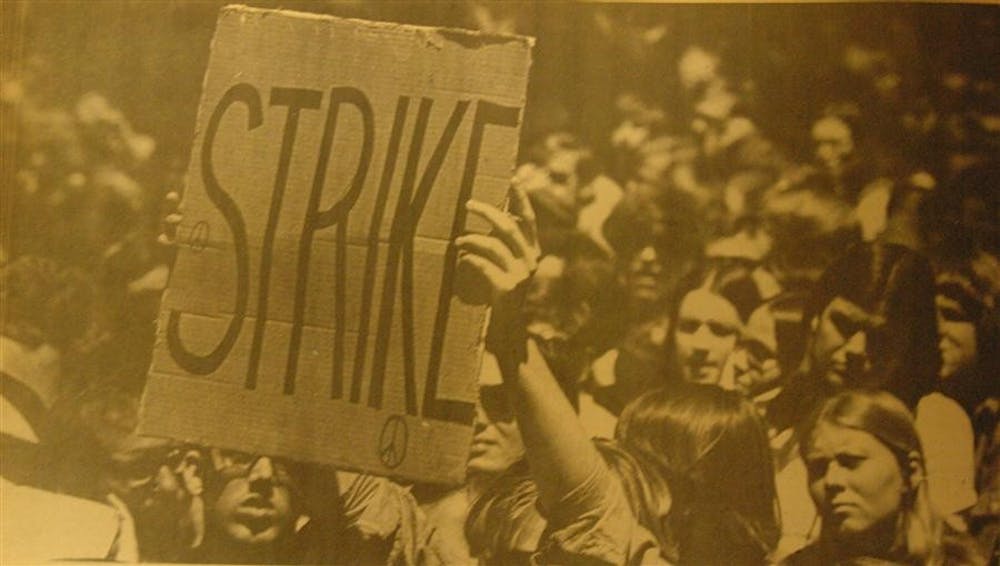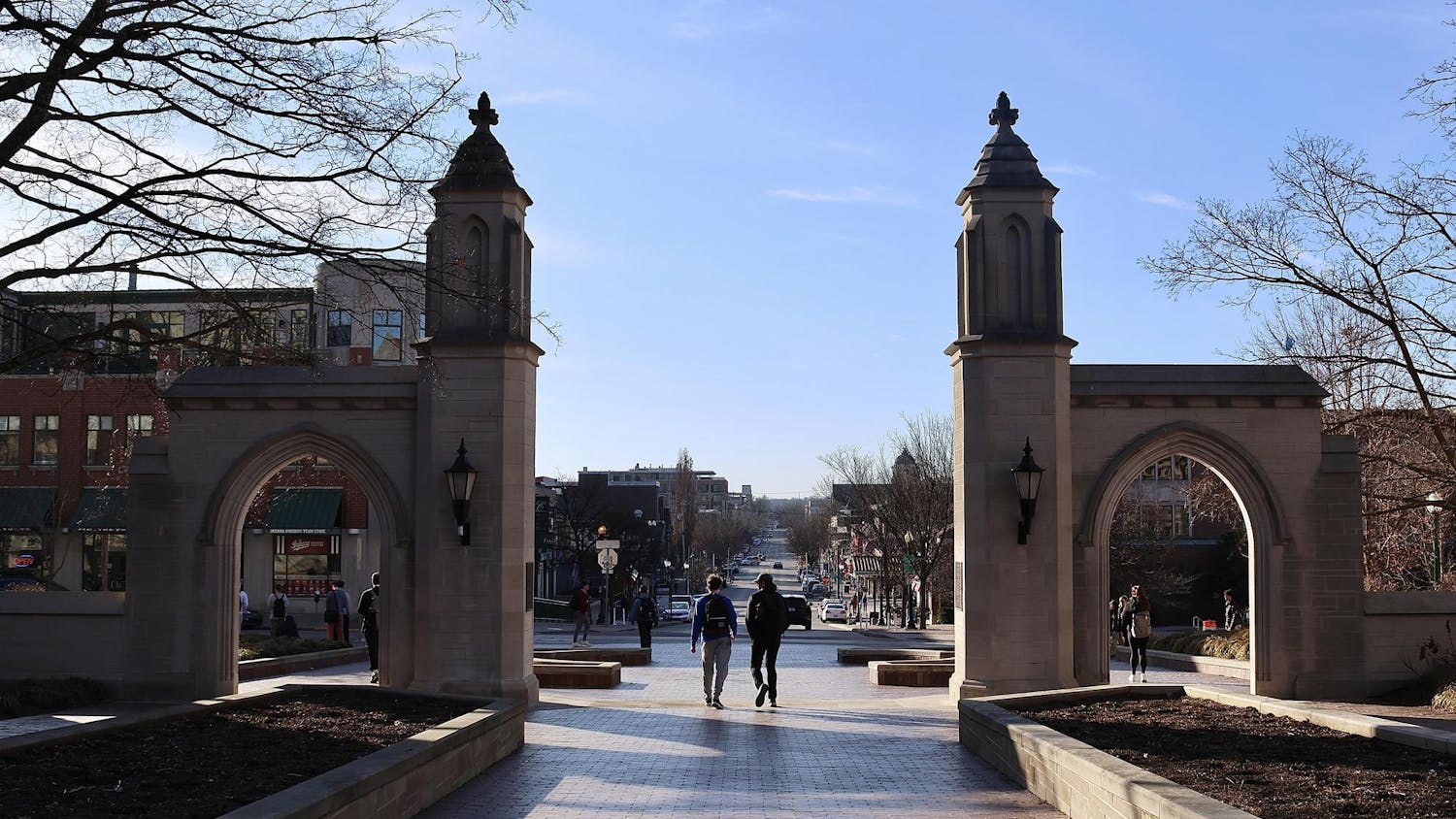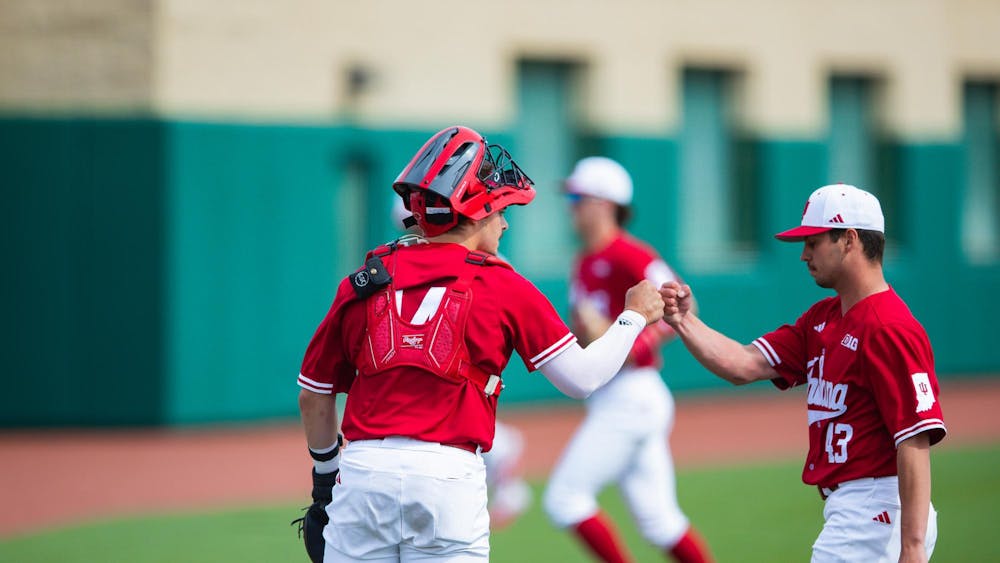Members of Young Americans for Liberty are asking administrators to examine IU’s current speech policies, which they believe unfairly limit students’ freedom of speech.
YAL Indiana State Chair and senior Nate O’Connor said this is a critical issue not just for the organization he is part of, but for all students.
“Students need an avenue to voice their opinions and get change done,” he said. “If we don’t have the necessary environment, place and forum to talk about these issues, very little awareness will be raised and students won’t be involved.”
Such an attempt to revise speech policy has been made before.
“It’s been an on-going battle for a few years,” O’Connor said.
In 2010, Nicholas Perrino, who was the IU Student Association executive director of legal affairs at the time, voiced his concerns about IU’s speech policies. He worked with Samantha Harris, director of Speech Code Research at Foundation for Individual Rights in Education, to identify key issues.
IU-Bloomington’s Policy on Free Speech in the Student Organization Handbook restricts any expressive activities, such as protests, rallies and demonstrations, to Dunn Meadow and Sample Gates.
Those wishing to engage in such activities must notify the Student Activities Office at least 24 hours in advance, and only Dunn Meadow can be used for “spontaneous” expression, according to the policy.
IU’s Code of Student Rights requires all student speech to be “civil” and prohibits “verbal abuse” as well as “expressed or implied threats,” while IU’s Residence Hall Rules and Regulations policy restricts speech on “areas frequented by the public” that can be construed as being “offensive” or “inappropriate.”
Harris noted in a memo that these policies served to produce a “chilling effect” on free speech.
“While I think there were good intentions by the bureaucrats who wrote these policies, they didn’t really understand that some of these policies aren’t constitutional,” O’Connor said. “That’s not good.”
Perrino attempted to work with administrators on his findings but was told to wait.
This semester, YAL decided to follow up on the issue. During Constitution week, the organization encountered its own problems with the speech policies at IU.
“We wanted to put up a free speech wall and keep it going all week,” O’Connor said. “Then we read in the Student Organization Handout that no student organizations can hold an event more than twice a week.”
While the YAL members spoke with administrators and were allowed to go ahead with their initial plan, O’Connor was concerned with IU’s inconsistency in applying the policies.
“Things are really only enforced if you ask permission. If you go ahead and just do it, they don’t care,” he said. “The administrators are good about it and support free speech, but the policies don’t support their practices.”
O’Connor worked with FIRE to brainstorm a new potential policy, and approached IUSA Director of the Department of Student Rights and IDS opinion columnist Daniel O’Connell.
O’Connell found that his concerns with the “contradictory and overlapping” speech policies mirrored theirs.
“I think it’s necessary to make absolutely clear what rights students have on campus,” O’Connell said.
He helped O’Connor arrange a meeting with Assistant Dean of Students and Director of Student Life Learning Stevan Veldkamp, who is in charge of the student handbook containing the Policy on Free Speech, as well as IUSA President Kyle Straub.
“Kyle was receptive and encouraged him to continue pursuing the issue,” O’Connell said. “The rest of the administrators were encouraging and pleased that students were getting involved.”
O’Connor wasn’t as satisfied after his meetings with the administrators.
“We’ve been met with weak support from the university,” he said. “I spoke with Dean Veldkamp and he dodged the question.”
Veldkamp was unavailable for comment.
O’Connell, who was present at the meeting, said Veldkamp encouraged YAL to get more input from students, organizational leaders and advisers.
“I think the next step is to synthesize what they have developed with student input and the current policies as they stand now to develop a comprehensive policy,” O’Connell said.
O’Connor also met with Dean of Students Harold “Pete” Goldsmith, who he said did not read the memos that he had sent regarding the policies and potential changes.
“If these policies remain in place, IU administrators could be sued for damages because of their continued lack of cooperation,” O’Connor said. “For students, the inability to express themselves is unjust and unacceptable.”
Goldsmith doesn’t believe there have been any real issues with free speech at IU.
“The policies have some language that appears to be contradictory, but the business practice promotes students’ free speech,” he said. “As they have pointed out, there exists some confusion and we’re going to take a look at them to try and eliminate it.”
O’Connor said this concerns him.
“I don’t think it makes sense to wait until there’s actually an incident to address the problem,” he said. “Students are reaching out, and the ball is in the University’s court.”
He attended a meeting with faculty members Wednesday to raise the speech policy issue.
“Those who attended were warm to the idea to revise these codes now,” he said in an email.
He is aiming for changes to take place by next fall.
“Free speech is something that is necessary to voice and express political opinions and ideas,” he said. “It’s the foundation on which our other rights exist.”
Students push for free speech reform

Get stories like this in your inbox
Subscribe





